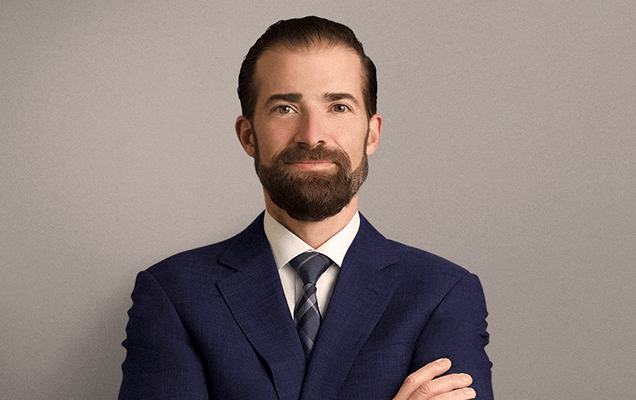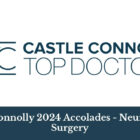Not all acoustic neuromas require surgery, but if your doctor has recommended surgical treatment, you may be wondering what to expect during your recovery period. Every patient’s recovery experience will be unique, depending on several factors such as age, individual health conditions and the size of your acoustic neuroma. Learning about recovery in the hospital and at home can help you develop a better understanding of what most patients will experience following acoustic neuroma surgery.
Hospital Recovery
Immediately after your surgery, you will recover in a special room where you can be carefully monitored as you awake from your anesthesia. Once the staff has determined you are stable, you will be moved to your recovery room, where you can expect to spend about 3 days.
You might notice some discomfort in your throat if you were given a breathing tube, as well as a headache, nausea or dizziness. This should begin to pass, and if not, you will be given medications to help you feel more comfortable.
During your stay in the hospital, your doctor will monitor your condition to ensure there are no complicating side effects and that your breathing, heart rate and blood pressure have all returned to normal levels. You will gradually be able to increase your daily activity, but you can expect to be on restrictions during your hospital stay, as well as during the home recovery period that follows.
At-Home Recovery
Though your doctor will give you specific instructions, it’s important to start with an idea of what to expect during your at-home recovery following your acoustic neuroma surgery. You will likely be given a prescription for pain medication to help you feel more comfortable when you are discharged. You will likely feel tired and need to take it easy, so it can be useful to have someone help you with chores around the house and childcare, allowing you to focus on healing.
Two Weeks After Surgery
A couple of weeks following your surgery, your doctor may transition you from any narcotic pain medications to acetaminophen, depending upon your individual case. Although unlikely, some patients may be prescribed pain medications for up to a month to help manage any discomfort.
At this point, you will be returning to your surgeon to have any sutures or staples removed and to undergo your first follow-up visit. He or she will discuss increasing your activity levels, based on your progress and how you are feeling. You will likely be feeling more energy at this point, but remember to adhere to any restrictions your doctor has given you until you have been cleared to do more.
One Month After Surgery
After your first month of recovery, you will likely be experiencing fewer and fewer headaches and your energy will have returned. You will still be under activity restrictions. Most patients can expect to return to work after six to 12 weeks, depending on your individual recovery.
If you have been experiencing any dizziness or balance issues, your doctor may recommend home exercises to help ease your discomfort. If you have any facial weakness, you may be given a set of exercises to do to strengthen your facial muscles. If you have experienced any hearing loss, your doctor may suggest following up with an audiologist.
We are more than surgeons, we are your support system.
Six Months After Surgery
By this point, most patients will have returned to work and have most, if not all, activity restrictions lifted. Some patients will still experience lingering side effects during this phase following acoustic neuroma surgery, such as vision or hearing problems, dizziness, headache or facial muscle weakness. If you experience any of these complications, you can expect to have more follow-up visits with your doctor or other specialists to address any issues.
One Year After Surgery
One year following surgery, most patients who have not experienced any surgical complications can expect to have resumed all activities and be symptom-free. If you have suffered hearing loss, you will likely be working with an audiologist and/or speech language pathologist and you may have received a hearing aid. For patients who experience prolonged facial paralysis or weakness a year after surgery, you may be referred to an ENT surgeon to discuss surgical solutions.
Your Recovery Is a Process
The size, location and progression of your acoustic neuroma are not the same as the next patient’s and your recovery is a personal and individual process. Educating yourself on what is experienced by the majority of patients is the best way to have a better idea of what you can expect along the way.
Prior to your surgery, your doctor will discuss with you which symptoms he expects to be resolved following surgery, any potential risks and side effects that may develop, how long you can expect to be on activity restrictions and how long before you will likely be able to return to work.
Knowing these details beforehand can help you make arrangements prior to your acoustic neuroma surgery, preventing unexpected hassles during your recovery period and allowing you to focus exclusively on getting better.

About Dr. Anthony D'Ambrosio
Dr. Anthony D'Ambrosio is an accomplished neurosurgeon in North Jersey and a proud member of Neurosurgeons of New Jersey practicing primarily out of their Ridgewood office conveniently located on East Ridgewood Avenue. Dr. D’Ambrosio focuses his clinical practice on brain tumors, nervous system disorders, and facial pain disorders. He has expertise in a variety of complex surgical and radiosurgical techniques as well as minimally invasive procedures intended to successfully treat complex diseases of the brain. These techniques include micro-neurosurgery, microvascular decompression surgery and Gamma Knife radiosurgery. He's authored over 25 peer-reviewed journals and is the recipient of many awards.






